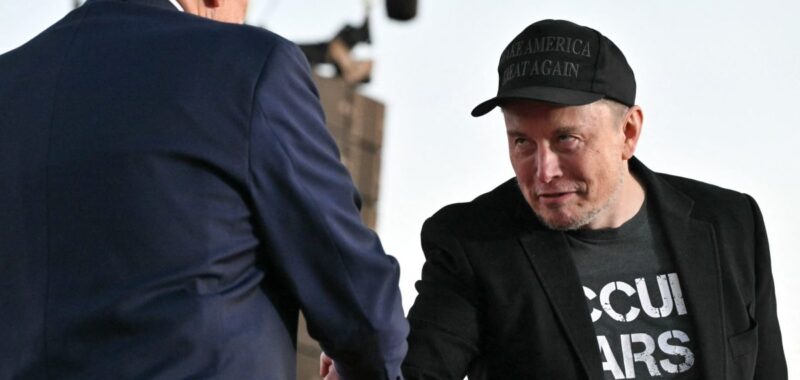On the same day as Tesla’s Cybercab launch, former President Donald Trump said on the campaign trail that he would ban Chinese-made autonomous vehicles if reelected to the White House this November.
“I will continue my first-term efforts to protect America from the threat of Chinese automobiles. I will stop Chinese and other countries producing automobiles and autonomous vehicles,” Trump said at a Detroit Economic Club campaign event. He also promised to make car loans fully tax deductible and touted his plan to give small businesses bigger tax deductions.
“Does anybody like an autonomous vehicle, you know what that is right?” Trump asked the crowd. “When you see a car driving along. Some people do, I don’t know, a little concerning to me, but the autonomous vehicles – we’re going to stop from operating on American roads.”
There are currently multiple Chinese tech companies and startups testing fleets of self-driving cars in major cities across China, including in Wuhan and Beijing. And some already have commercial operations, with Guangzhou-based WeRide serving customers. Another startup, Pony.ai, is also permitted to operate robo-taxis in major cities.
U.S. competition is catching up, with Alphabet and Uber’s Waymo driverless cars recently expanding to new cities. According to a recent report, Waymo recently hit more than 100,000 weekly paid rides in Phoenix, San Francisco and Los Angeles, where its app is available for customers to book their own travel.
Trump’s campaign pledge would help those U.S.-based tech companies as well as billionaire supporter Elon Musk, who unveiled the long-awaited Tesla robo-taxi and robo-van on Thursday. The new vehicles, expected to hit the road in 2026, are electric and fully automated with no steering wheel or pedals.
Musk has been a fervent supporter of Trump, even flirting with a potential role in his administration if he wins. The X owner appeared at a Trump campaign event earlier this week, during which he called himself “Dark MAGA.”
China’s autonomous vehicle advancements have also caught the eye of the Biden administration and Trump’s Democratic rival Vice President Kamala Harris. They have proposed banning Chinese-made hardware and software in connected vehicles due to national security concerns over the technology used in these cars. If implemented, the new rule would deprive Chinese autonomous vehicle makers of the relatively lax regulations they have enjoyed in the U.S. so far.
Chinese companies have quietly tested autonomous vehicles in the U.S. for years, and since 2017, these vehicles have driven more than 1.8 million miles in California alone, Fortune previously reported.
Data Sheet: Stay on top of the business of tech with thoughtful analysis on the industry’s biggest names.
Sign up here.

